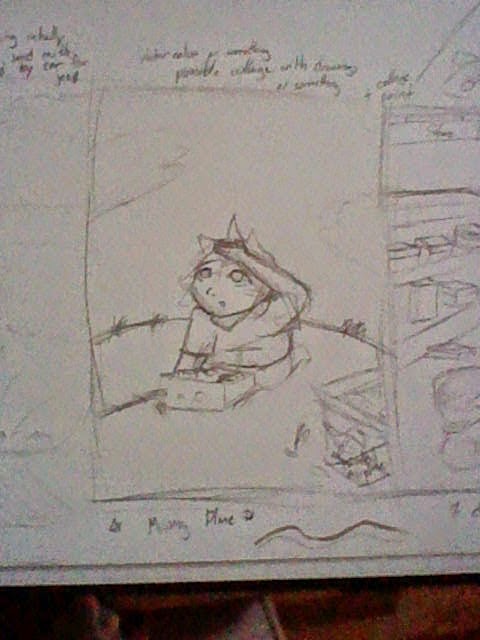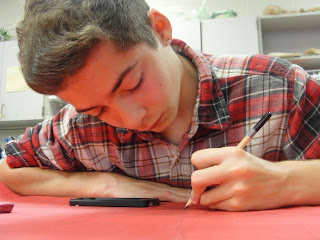The old blue prints are out the window and at Apex High School we are laying down a new set of plans that are setting the world of Art Education on its ear. Simply stated, we are no longer interested in making art but rather, making artists.
The Open Art Room is a concept where students no longer follow step by step, recipe type art projects but are encouraged to communicate ideas and take risks in a self-directed learning environment.
Are we geniuses who thought this all up? Well, some of it. However, we are really good at borrowing and synthesizing concepts. We merged great ideas from
PBS Art 21 and Choice-based teaching methods like
Teaching For Artistic Behaviors (TAB). Here are some of our foundation methods.
Theme Lessons: Starting with a big idea or questions allows the students to conceive meaningful art. We're not just drawing puppies here. We are creating art that communicates to the audience.
Choice in Media: Gone are the days when art was all about paint on canvas. Anything can be an art material so why should the teacher decided? Choice in media allows the student to select the materials they believe will best communicate their vision.
Artistic Behaviors: Knowing how to color inside the lines is not what it takes to make an artist. Yes, artists need to have art making skills but they also need to know how to communicate through their work, take risks and solve problems. At Apex, we developed a list of
Artistic Behaviors students use as a guideline when working on their projects.
Reflection: Once the art is created, an artist should be able to intelligently speak about it. We encourage each artist at Apex to track the progress of their work and reflect on finished pieces online. Each beginning
student creates a blog that follows them throughout the program.
All of this is not without controversy. There are some that say students need guidelines and boundaries and believe programs like ours simply let children do whatever they want without structure. We say,
one look at the innovative work coming out of our program silences these accusations.
Furthermore, we are not alone. Thanks to social media, art teachers with similar views have been able to discuss ideas and even collaborate online. Art teachers like
Jack Watson of Chapel Hill, NC and
Colleen Rose from Ontario, Canada are developing similar programs with great success.


















































